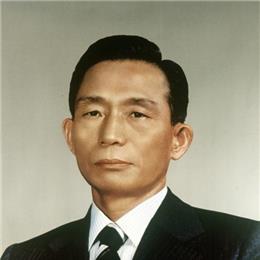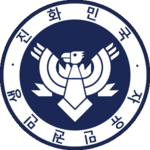Kim Shimin: Difference between revisions
No edit summary |
No edit summary |
||
| Line 55: | Line 55: | ||
|party = [[Nationalist Party (Zhenia)|Nationalist Party]] | |party = [[Nationalist Party (Zhenia)|Nationalist Party]] | ||
|allegiance = {{flag|Zhenia}} | |allegiance = {{flag|Zhenia}} | ||
|branch = [[Greater Eastern Union Army]] (1915-1949, | |branch = [[Greater Eastern Union Army]] (1915-1949, 1953-1979) | ||
|serviceyears = | |serviceyears = | ||
|rank = {{wp|Generalissimo|Supreme Commander of the Defense Forces}} | |rank = {{wp|Generalissimo|Supreme Commander of the Defense Forces}} | ||
|commands = [[Greater Eastern Union Defense Forces]] | |commands = [[Greater Eastern Union Defense Forces]] | ||
|battles = [[First Great War (INWU)|First Great War]]<br>[[Second Great War (INWU)|Second Great War]]<br>[[Coup of 1955]] | |battles = [[First Great War (INWU)|First Great War]]<br>[[Second Great War (INWU)|Second Great War]]<br>[[Coup of 1955]] | ||
|awards = | |awards = [[Medal of the Phoenix]] | ||
|signature = | |signature = | ||
}} | }} | ||
'''Kim Shimin''' ([[Zhenian language|Zhenian]]: 김시민/金時敏), was a [[Zhenia|Zhenian]] military leader and {{wp|politician|statesman}} who served as the [[List of Heads of State of Zhenia|8th]] [[Chancellor of the Greater Eastern Union]] from 1955 to 1979, during the [[Greater Eastern Union Third Republic|Third Republic]]. With a term length of over 24 years, he retains the title of the longest-serving Chancellor in Zhenian history. Prior to his term as Chancellor, he had served as a military leader of the [[Greater Eastern Union Army]] during the [[First Great War (INWU)|First]] and [[Second Great War (INWU)|Second Great Wars]]. | '''Kim Shimin''' ([[Zhenian language|Zhenian]]: 김시민/金時敏), was a [[Zhenia|Zhenian]] military leader and {{wp|politician|statesman}} who served as the [[List of Heads of State of Zhenia|8th]] [[Chancellor of the Greater Eastern Union]] from 1955 to 1979, during the [[Greater Eastern Union Third Republic|Third Republic]]. With a term length of over 24 years, he retains the title of the longest-serving Chancellor in Zhenian history. Prior to his term as Chancellor, he had served as a military leader of the [[Greater Eastern Union Army]] during the [[First Great War (INWU)|First]] and [[Second Great War (INWU)|Second Great Wars]], having been responsible for the [[Indian Campaign (1939)|Indian Campaign]] (1939-1940) and the [[Australian Campaign (1941)|Australian Campaign]] (1941-1943) in the southern front. | ||
Born in modern-day [[Dongdo]] on October 26, 1894, Kim Shimin became a military officer of the [[Greater Eastern Union Army]] after graduating the [[Greater Eastern Union Military Academy]], {{wp|summa cum laude}}, in 1914. Having led his company in the first landings during the [[Eurian Campaign (1916)|Eurian Campaign]], he was awarded the [[Medal of the Phoenix]] for his bravery during the campaign. | Born in modern-day [[Dongdo]] on October 26, 1894, Kim Shimin became a military officer of the [[Greater Eastern Union Army]] after graduating the [[Greater Eastern Union Military Academy]], {{wp|summa cum laude}}, in 1914. Having led his company in the first landings during the [[Eurian Campaign (1916)|Eurian Campaign]], he was awarded the [[Medal of the Phoenix]] for his bravery during the campaign. Following the end of the First Great War, he served under the Governor-Generals of [[Protectorate of Yinguo|Yinguo]] and was ultimately promoted to lieutenant general by 1937, becoming the youngest lieutenant general in GEUDEF history at the time. During the Second Great War, he oversaw major Zhenian campaigns in the southern front, most notably the Indian and Australian campaigns; he was displaced to oversee the defense effort of the mainland by 1945, staying near [[Daedo]] until the end of the war. Although he had been formally released from service directly after Zhenian defeat of the Second Great War, he returned to become a lieutenant general of the [[Second Corps (Zhenia)|Second Corps]] amid the restoration of the GEUDEF. | ||
In February 13, 1955, Kim Shimin led a [[Coup of 1955|military coup]] alongside the [[Front of National Salvation (Zhenia)|Front of National Salvation]] against [[Choi Yoondeok]]'s government, effectively ending the [[Second Zhenian Republic|Second Republic]]. After the coup's success, he temporarily headed the National Reconstruction Council and was eventually elected into Chancellor in the elections that were held in May. After purging political opponents and strengthening his monopoly over the nation's politics, his regime led the post-war reconstruction effort of Zhenia, resulting in an economic boom later known as the [[Miracle of the Danbon River]]. | |||
==Early Life== | ==Early Life== | ||
Revision as of 01:50, 9 February 2020
His Excellency Generalissimo Kim Shimin | |
|---|---|
 Official portrait of Kim Shimin, taken in 1956. | |
| 8th Chancellor of the Greater Eastern Union | |
| In office March 18, 1955 – November 29, 1979 | |
| Preceded by | Choi Yoondeok |
| Succeeded by | Li Shan |
| 1st President of the National Reconstruction Council | |
| In office February 13, 1955 – March 18, 1955 | |
| Preceded by | Gwanho Liu |
| Succeeded by | Position merged into Chancellor |
| Commander-in-chief of the Greater Eastern Union Defense Forces | |
| Assumed office February 14, 1955 | |
| Preceded by | Choi Yoondeok |
| Succeeded by | Li Shan |
| Personal details | |
| Born | Kim Shimin (金時敏) October 26, 1894 Dongdo, Haedong Prefecture, Empire of Zhenia (modern-day Haedong SAR |
| Died | June 4, 1982 (aged 87) Dongdo, Haedong Special Administrative Region, Zhenia |
| Resting place | Kim Shimin Memorial, Dongdo, Haedong Special Administrative Region, Zhenia |
| Political party | Nationalist Party |
| Spouse | Hamin Cho (1920-1975) |
| Children | Kim Jinseok (1933-) Kim Jongseo (1937-) |
| Occupation | Revolutionary, military leader, statesman |
| Awards | Medal of the Phoenix |
| Ethnicity | Jin Zhenian |
| Military service | |
| Allegiance | |
| Branch/service | Greater Eastern Union Army (1915-1949, 1953-1979) |
| Rank | Supreme Commander of the Defense Forces |
| Commands | Greater Eastern Union Defense Forces |
| Battles/wars | First Great War Second Great War Coup of 1955 |
Kim Shimin (Zhenian: 김시민/金時敏), was a Zhenian military leader and statesman who served as the 8th Chancellor of the Greater Eastern Union from 1955 to 1979, during the Third Republic. With a term length of over 24 years, he retains the title of the longest-serving Chancellor in Zhenian history. Prior to his term as Chancellor, he had served as a military leader of the Greater Eastern Union Army during the First and Second Great Wars, having been responsible for the Indian Campaign (1939-1940) and the Australian Campaign (1941-1943) in the southern front.
Born in modern-day Dongdo on October 26, 1894, Kim Shimin became a military officer of the Greater Eastern Union Army after graduating the Greater Eastern Union Military Academy, summa cum laude, in 1914. Having led his company in the first landings during the Eurian Campaign, he was awarded the Medal of the Phoenix for his bravery during the campaign. Following the end of the First Great War, he served under the Governor-Generals of Yinguo and was ultimately promoted to lieutenant general by 1937, becoming the youngest lieutenant general in GEUDEF history at the time. During the Second Great War, he oversaw major Zhenian campaigns in the southern front, most notably the Indian and Australian campaigns; he was displaced to oversee the defense effort of the mainland by 1945, staying near Daedo until the end of the war. Although he had been formally released from service directly after Zhenian defeat of the Second Great War, he returned to become a lieutenant general of the Second Corps amid the restoration of the GEUDEF.
In February 13, 1955, Kim Shimin led a military coup alongside the Front of National Salvation against Choi Yoondeok's government, effectively ending the Second Republic. After the coup's success, he temporarily headed the National Reconstruction Council and was eventually elected into Chancellor in the elections that were held in May. After purging political opponents and strengthening his monopoly over the nation's politics, his regime led the post-war reconstruction effort of Zhenia, resulting in an economic boom later known as the Miracle of the Danbon River.
